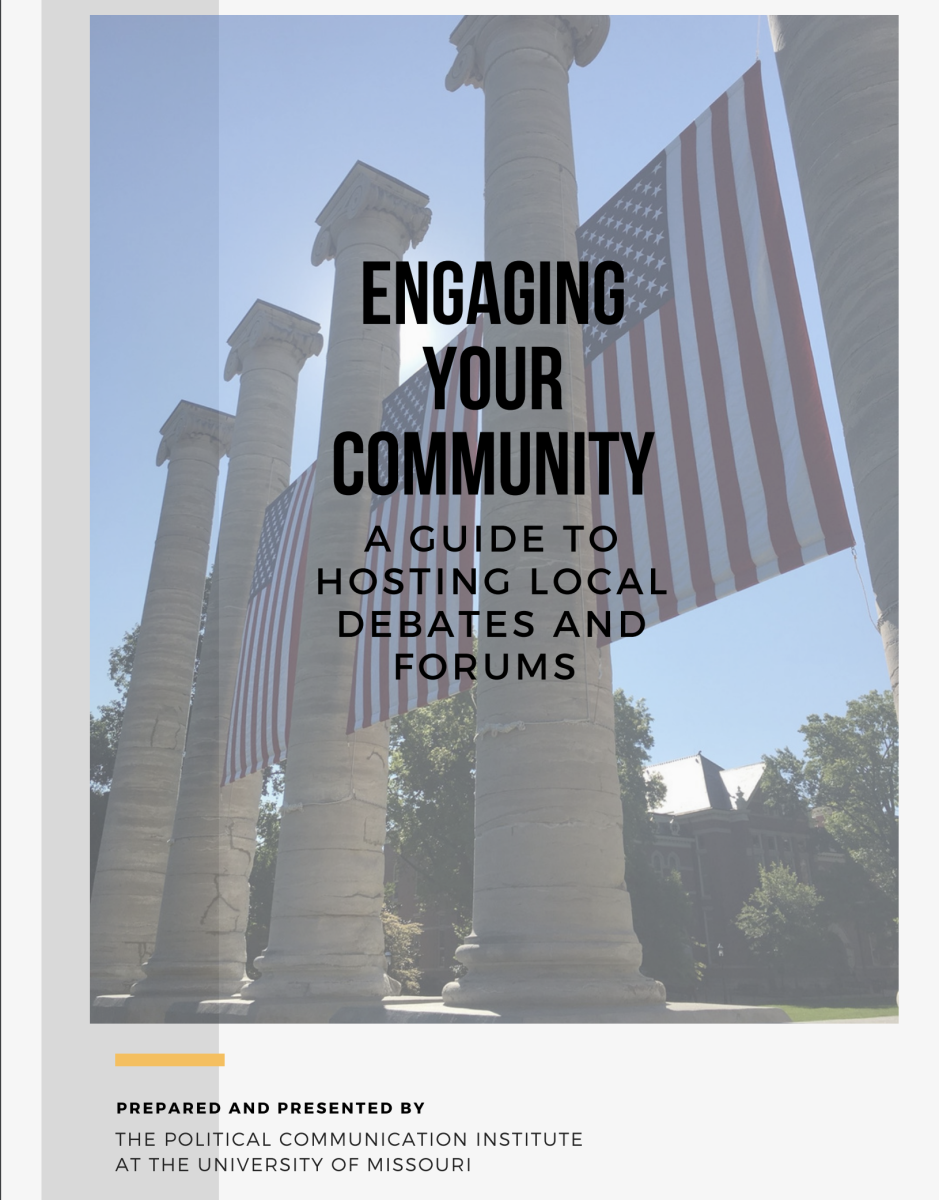
As the 2018 midterm election closes in, candidates from the state to the local level are increasingly vying for the attention of voters. The Political Communication Institute’s newest endeavor seeks to advocate and prepare communities for what it believes may be the most important facet of a campaign– debates and local forums.
“[PCI’s] primary purpose is to bring together scholars who are interested in understanding how we communicate on politics and how that communication leads to how we construct politics, and how we make sense of politics,” said Bryan Paul, Research Associate and Graduate Teaching Assistant in the Department of Communication.
Past research through the PCI, a graduate and faculty research group, led the group to recognize a need for a guide to debates and forums at the local level.
“There are several guides from various international, or other think tank institutions, that provide guides to hosting presidential level debates,” said Josh Bramlett, research associate at PCI and graduate teaching assistant in the Department of Communication. “And we wanted to… provide a guide on how to do it at the local level.”
With its guide, “Engaging Your Community: A guide to hosting local debates and forums,” the group wanted to give back to the local community by sharing its political research.
“Academics, in my opinion, have some responsibility to try to make a practical impact in the community and the state. And we believe this debate and forum guide can do so,” Bramlett said.
The guide, according to PCI’s website, “provides insight on the main questions and issues related to organizing and planning (local debates and forums).”
From finding sponsorships to handling press coverage, the PCI’s how-to guide details a practical plan that any interested organization or candidate can easily follow to strengthen political discourse.
“Engaging Your Community” also focuses on informing the public and creating positive dialogue about politics within our community.
“[Debates] can make you more informed, I mean that may be the most important part,” Bramlett said. “Even if you watch a debate and you don’t switch your vote and you don’t even make up your mind that day, you will know more… you’ll know more about the issues in your community and you’ll know more about the people running to represent you.”
In a world of Twitter wars and viral videos, holding local debates and forums may seem archaic, but the staff at PCI said that debates still remain an integral part of the democratic process.
“There’s something powerful and special about being able to come together, face-to-face, in person, to talk about these things… there’s no computer screen, no phone separating you from the individual,” Paul said. “You’re there, in person with them. You’re seeing them. You’re talking to them.”
Inspiring healthy political conversations in local communities may seem like a lofty goal, but debates have the unique ability to bring legislation home. The PCI said it hopes the guide will one day facilitate this vision.
“If we help improve the activity and the quality of democratic dialogue, deliberation and debate then that would be a success and that would be meaningful,” Bramlett said.
_Edited by Caitlyn Rosen | [email protected]_